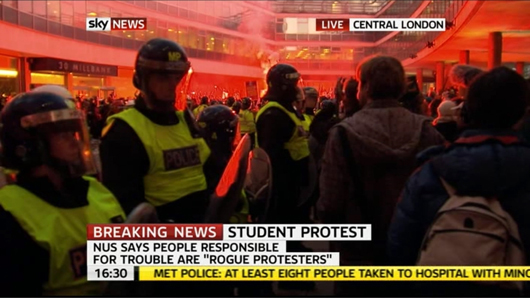In the wake of the UCU strike, the 2018-19 Pay Negotiations are now underway. Last year, the unions settled for a below inflation increase of 1.7%, this year things might be a bit different. Militancy on campuses, distilled into collective action, sowed the seeds of discontent, and there’s a real possibility that we will be able to harvest the fruits of our labour given the current climate.
The Joint Higher Education Trade Union Pay Claim was submitted on 21 March, less than a week after the UCU strike ended. Headlining a pay increase of 7.5%, or £1,500 for the poorest paid / lowest grade staff, the Claim seeks to ‘catch up’ and ‘keep up’ with inflation. Since 2009, university employees have seen their salaries fall by 19.3% in real terms. If you don’t know what that means, then Unison provide a handy calculator ‘How much pay are you losing out on?’ – https://unison.typeform.com/to/OJcr89. Meanwhile, the institutions themselves are amassing ever increasing reserves, they now have £44 billion in the bank, compared to £12 billion in 2009. They say they need this money to ‘deal with financial uncertainty and demonstrate financial health to lenders’, but that seems like one hell of a safety net. The truth of the matter is that they have deprioritised staff to focus on ‘investment’. They tell us their logic is driven by concerns around Brexit, falling tuition fees and, ironically enough, inflation. However, there are other dynamics at play, including a broader strategy of marketisation, one that requires loans to be leveraged and ledgers to be shifted into an interest-paying and profit-making model. In other words, universities are becoming businesses rather than educational institutions.
The Pay Claim is more than just a pay claim though. As well as pointing towards falling standards of living, it attacks the structural toxicity, characterised by overwork, precarity and ‘Shameful and persistent inequality’. In a recent survey, nearly 30% of staff said that their workloads were unmanageable all or most of the time, with another 65% stating their workloads were unmanageable at least half of the time. Staff employed on casual or zero-hour contracts report that they struggle to afford the basics, like food and bills. Data from 2016 tells us women are paid less than men, on average, at 156 HEIs, only earning pay equal to or more than men at eight HEIs. Under such conditions it’s hardly surprising morale is in the toilet; but we’re angry, we’re really angry.
The UCU strike mobilised around pensions. For many, it was as if the union drew a line in the sand and said, ‘This far, but no further’. We’re accustomed to these types of struggles, ones where we find ourselves in a defensive position while under attack. But there’s a problem with this. It forces us to give away our power by putting us on the back-foot. We end up reacting to a prescribed set of circumstances, as if someone’s given us a road map, and the best we can do is try to navigate our way round. This hems us in. We find ourselves operating according to the boss’s framework and technocratic logic, and this limits our ability to articulate the struggle in our terms, which is crucial if we want to win people over to our way of thinking. It’s as if we’ve forgotten that the map isn’t the territory. But there are other ways. Now is the time to explore alternative routes, to step over that line in the sand and fight back.
A good starting point is the Joint Pay Claim, from it we can produce a series of demands:
• A catch up and keep up pay award.
• Reasonable workloads.
• An end to casual and precarious contracts.
• Real progress to address the ‘shameful and persistent inequality’ in the workplace.
As a Joint Pay Claim, representing all staff who work in the HE sector, it allows us to talk to and mobilise everyone. On this basis, we can shut down campuses, and they know it. Those supposedly risk-averse university employers are really quite concerned. They’ve only just managed to emerge from the UCU strikes. We need to build on this. We need to take the fight to them. Following the final negotiating meeting on 10 May, we should be ready, ready and waiting, because they’re expecting us.
From a Sussex University Worker



